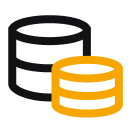
Stacks Price
stx
Price Statistics
How do you feel about Stacks today?
Price History (USD)
STX Live Price Summary
As of Mar 29, 2025, the global cryptocurrency market cap is $951.16M with a -6.95% change in the last 24 hours. Today's price of STX is $0.626184, with a 24-hour trading volume of $32.95M. STX is -6.97% in the last 24 hours, with a circulating supply of 1.52B STX coins and a maximum supply of 1.82B STX coins. STX ranks 87 by market cap. It has a 24H high of $0.675934 recorded on Mar 29, 2025, and its 24H low so far is $0.623935, recorded on Mar 29, 2025.
What Is the Highest Price of STX?
STX has an all-time high (ATH) of $3.86 , recorded on Apr 1, 2024.
What Is the Lowest Price of STX?
STX has an all-time low (ATL) of $0.04559639, recorded on Mar 13, 2020.
About Stacks (STX)
View More
Frequently Asked Questions (FAQ)
How much is Stacks today?
As of Mar 29, 2025, the current trading price of Stacks (STX) is $0.626184. Over the past 24 hours, the price has ranged between a low of $0.623935 and a high of $0.675934, accompanied by a trading volume of $32.95M. The overall market capitalization is $951.16M, positioning it at rank #87 among other cryptocurrencies.
How much is one Stacks ?
At this moment, one unit of Stacks is valued at $0.626184. Please note that due to market fluctuations, this price may vary throughout the day.
How to invest in Stacks ?
Investing in Stacks begins with comprehensive research into its market performance and potential risks. Start by reviewing its current price of $0.626184, along with its recent 24-hour trading range—from $0.623935 to $0.675934—and its overall market cap of $951.16M. To get started, create a Bybit account, complete Identity Verification Lv. 1, and then deposit funds either via fiat or by transferring another cryptocurrency. After your account is set up and funded, you can navigate to the Bybit trading interface where you can place an order for Stacks. Finally, consider transferring your coins to a secure wallet to ensure their safety.
Where to buy Stacks?
To purchase Stacks on Bybit. You can easily sign up, fund your Bybit account, and start trading, making it easy for both beginners and experienced traders to buy cryptocurrencies. Alternatively, you can just click on the buy/trade button above.
How to buy Stacks?
To buy Stacks on Bybit, start by signing up for an account on the Bybit platform and completing Identity Verification Lv. 1 to comply with KYC requirements. After your account is verified, deposit funds using your preferred method—Bybit supports both fiat deposits (depending on your region) and cryptocurrency transfers. With funds in your account, navigate to the trading section where you can search for Stacks (often listed under its symbol, STX). You can then place an order—choosing either a market order for an immediate purchase at the current price of $0.626184 or a limit order if you prefer to set your own price. Once the order is executed, your Stacks will be credited to your Bybit wallet, where you can choose to keep them or transfer them to another secure wallet.
How to sell Stacks?
Selling Stacks on Bybit follows a process similar to buying. Begin by logging into your Bybit account and navigating to the trading interface. Locate Stacks within your portfolio or the market listings. When you are ready to sell, decide whether to use a market order for a quick sale at the prevailing price, or a limit order if you wish to set a specific selling price. Once your order is placed and executed, the funds from the sale will be available in your account. You can then choose to withdraw these funds to your bank account or convert them into another cryptocurrency, according to your investment strategy.
Is Stacks a good investment?
Determining if Stacks is a suitable investment depends on several factors, including your risk tolerance, market research, and long-term financial goals. With a current price of $0.626184 and a market capitalization of $951.16M (ranking it at #87), Stacks has demonstrated significant activity. Its 24-hour trading range—from $0.623935 to $0.675934—and historical performance, highlighted by an all-time high of $3.86 on Apr 1, 2024 and an all-time low of $0.04559639 on Mar 13, 2020, provide valuable context. While these metrics are promising, it is essential to conduct your own research and consider professional financial advice to determine if this asset fits into your portfolio strategy.
How many Stacks are there?
Currently, there are 1.52B units of Stacks in circulation, with a maximum supply capped at 1.82B. These figures are important to consider when evaluating scarcity and potential market dynamics, and they can change over time due to network updates or new coin emissions.
Disclaimer
Investments in cryptocurrencies, including but not limited to purchasing Stacks and other digital assets through Bybit, carry significant market risk. Should the digital asset you are seeking not be currently available on Bybit, please be advised that it will be introduced in the near future. Bybit disclaims all liability for any results or outcomes of such investments. The information regarding pricing and other relevant data presented herein is derived from publicly available sources. This content does not reflect the official stance of Bybit and should not be construed as investment advice, a recommendation, or an offer to buy, sell, or hold any form of digital assets.
Investors are urged to thoroughly evaluate their financial capacity for trading or holding digital assets and are advised to seek consultation from qualified legal, tax, or investment professionals based on individual circumstances.
For comprehensive details, please review Bybit’s Terms of Service.
Top Trending Cryptos
Scan to Download App



















